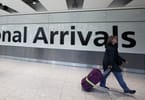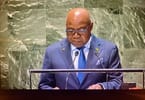NEW YORK – Recent fare hikes and the weakening U.S. economy could hit U.S. airlines’ bottom lines as more companies are requiring their traveling executives to fly economy instead of business class.
In times of economic strife, companies will do all they can to keep profitability levels steady and margins intact. Cutting costs on executives’ travel and entertainment (T&E) – is often the first step companies take.
While bookings for major U.S. airlines have held up well through the recent spate of airline industry fare hikes, analysts warned that companies are beginning to choose economy flights on some routes to save money.
For airlines, this is another blow as they battle unrelenting increases in fuel prices and a weakening economy.
“We are seeing some companies that have altered their policy or are in the process of reviewing it … to say instead of a five-hour business class policy, you have to be traveling eight hours,” said Dale Eastlund, a director at the consulting division of Carlson Wagonlit Travel.
“I think that companies are definitely going to feel the pinch … and the airlines are going to start evaluating which routes they want to continue flying,” added Eastlund.
Some carriers like AMR Corp’s American Airlines and UAL Corp have invested heavily in their first- and business-class cabins in hopes of attracting well-heeled business travelers.
The fuel price spike coupled with a steadily weakening U.S. economy has stalled the airline industry’s modest recovery from the 2001-2006 downturn. Oil prices, directly related to jet fuel costs, remain around $100 a barrel.
Major U.S. airlines have attempted nine fare increases so far this year, six of which have stuck, according to Rick Seaney, chief executive of air fare research site FareCompare. Fare hikes last only if the they are broadly matched by rivals.
Those increases have made companies think seriously about their travel budgets, especially for the pricier business class tickets, experts say.
“The most-coveted travelers are business travelers, because business travelers pretty much subsidize the rest,” Seaney said.
AIRLINES SHRINK TO SURVIVE
Big airlines are beginning to shrink to cope with much tougher operating conditions. On March 18, Delta Air Lines Inc unveiled plans to cut 2,000 jobs and scale back flights, leading the efforts by U.S. carriers to cut costs.
Delta, the No. 3 U.S. airline, which has been unable to seal a merger with rival Northwest Airlines Corp, will offer voluntary retirement and buyout packages to 30,000 employees.
Delta’s main rivals are also rolling out plans to cut capacity. UAL Corp, parent of United Airlines, said last week it will shrink its fleet by up to 4 percent this year to combat the skyrocketing cost of jet fuel.
“Fuel costs impact business travelers,” said Rob Greyber of Expedia Corporate Travel North America. “Higher ticket prices in the fourth quarter continued into the first quarter and, certainly, as companies look at their budgets that may impact what we we see through 2008.”
The previous downturn in the airline industry resulted in bankruptcies and unprecedented out-of-court restructurings. Hawaii-based Aloha Airgroup Inc said last Friday it has filed for bankruptcy protection.
However, analysts say that this time around, major U.S. carriers appear leaner and in better shape to weather the oncoming turbulence.
Companies may force some of their executives to travel coach, but they are still likely to make the trip, analysts said.
“Our clients … are not looking to make judgment calls on ‘this trip is good, that trip is too expensive’ but rather redoubling their efforts to manage … their corporate travel spend as appropriately as possible,” said Greyber of Expedia.
IS THE TRIP REALLY NECESSARY?
One company cutting back on executive travel is Levi Strauss & Co., and Levi spokesman E.J. Bernacki said that saving money is just one of the reasons. Bernacki said Levi is also keen to do its bit for the environment and for its executives to have good family lives.
“We have this year taken a good hard look at travel for a number of reasons,” said Bernacki. “Of course it is going to help us save money, but it is also a win for employees in that they get to spend more time at home and with their families.
“We also just finished a greenhouse gas inventory for our Americas region … so we expect that it will also be a win for the environment.”
Bernacki said Levi executives are encouraged to ask themselves if trips are really necessary or whether the task could be accomplished through a video conference.
“Overall, it is just really out of a sense of responsibility in three areas … to the company to save costs … to employees … and responsibility for the environment,” Bernacki added.
guardian.co.uk
WHAT TO TAKE AWAY FROM THIS ARTICLE:
- “Of course it is going to help us save money, but it is also a win for employees in that they get to spend more time at home and with their families.
- airlines have held up well through the recent spate of airline industry fare hikes, analysts warned that companies are beginning to choose economy flights on some routes to save money.
- “Higher ticket prices in the fourth quarter continued into the first quarter and, certainly, as companies look at their budgets that may impact what we we see through 2008.






















